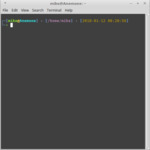
FlaskReactPostgresStack
May 2017 to Aug 2017
Full stack boilerplate for Flask, React, PostgreSQL via SQLAlchemy, with REST API, JWT, Gulp, Bower, Browserify, npm, and unit tests.
repo
FlaskReactPostgresStack
This is a boilerplate project built around these core technologies:
- Flask
- React.js
- PostgresSQL
- webpack
- Babel
- PyJWT
- SQLAlchemy
- Flask-Migrate
- psycopg2
- yarn
- Flask-CORS
- Flask-Webpack
The responsibilities split into groups are as follows:
Flask
This is the web server that gives us the ability to:
- Write REST APIs - included in the boilerplate code
- Write web pages - static or dynamic with optional templating (Jinja2, etc.)
- Communicate to a database - in this case, PostgresSQL via SQLAlchemy ORM & psycopg2
- Protect our site with JWT via PyJWT - implemented in the boilerplate already
- Optionally allow CORS to specified resources.
- Automatic caching (if configured) by having transpiled asset files with hashes in the name (via Flask-Webpack).
- Create database versions with migrations and upgrades easily with Flask-Migrate.
React.js
This is what we will write the frontend code in. The View in MVC.
PostgresSQL
This is the chosen database for this stack. While SQLite or MariaDB is also possible, PostgresSQL was chosen because it can scale to a fairly large size without intervention and is easily managed. Combined with Flask and SQLAlchemy, we can also create, migrate, and backup databases very easily.
yarn, webpack, Babel
These will handle management of frontend Javascript packages and compiling them to be usable by Flask. This includes installing and updating.
Functionality Provided Out of the Box
- REST API
- WWW pages with React.js capability
- JWT auth
- PostgresSQL Database w/ automatic migrations
- Unit Testing
- Javascript Package Management
- Python pip management via requirements.txt
- webpack + yarn scripts to watch for dev changes
- yarn scripts for commmon tasks
- CORS support
- Hashed filenames that are automatically converted in templates via Flask-Webpack
Functionality Left Out
- No choices are made on how to design your app.
- That also means no CSS Frameworks, Preprocessors, Postprocessors (except the universal basics), or Inline Styles decisions are made for you. That should be customized per project in my opinion.
Babel Presets and Plugins
We use Babel to transform our Javascript code via webpack. Babel has a lot of useful options and can help us control what future features we want to support in our Javascript code. The current configuration in our webpack config has Babel supporting the following:
webpack Features
I’ve also implemented some basic features of webpack that should be used in just about every project:
- Code Splitting of Libraries. Specifically for our project, we need react and react-dom. We also have the mainifest file implemented to make best use of chunks.
Basic Setup (first run)
Installation
1 2 3 4 5 6 7 8 91011
|
cd ~/<project root>
# Install Python Requirements in desired virtualenv:
pyenv local 3.6.1
pip install -r requirements.txt
# Install frontend libraries:
yarn
# Put pyenv back:
pyenv local 3.6.1
# Transform and leave webpack running to watch files for changes:
yarn run watch
# Now you can continue with the rest of the steps to get to a running Flask server.
|
Set Environment Variables
Update project/server/config.py, and then run:
1
|
$ export APP_SETTINGS="project.server.config.DevelopmentConfig"
|
or
1
|
$ export APP_SETTINGS="project.server.config.ProductionConfig"
|
Set a SECRET_KEY:
1
|
$ export SECRET_KEY="change_me"
|
Create DB
Create the databases in psql:
1234
|
$ psql
# create database flask_jwt_auth;
# create database flask_jwt_auth_test;
# \q
|
Create the tables and run the migrations to create the initial database config from which all migrations will be based off of:
123
|
$ python manage.py create_db
$ python manage.py db init
$ python manage.py db migrate
|
Anytime you want to upgrade the database table, run a migrate and then apply the upgrades after reviewing the changes:
12
|
$ python manage.py db migrate
$ python manage.py db upgrade
|
Run the Application
1
|
$ python manage.py runserver
|
Access the application at the address http://localhost:5000/
Want to specify a different port?
1
|
$ python manage.py runserver -h 0.0.0.0 -p 8080
|
List of Test URLs
- Root init, Route decorator, React via Template + webpack Babel transpile
- Root init, Route decorator, React embedded in Template
- Root init, Route decorator, React via Template + webpack Babel transpile - This is for testing that the REST API indeed works correctly.
- Blueprint, MethodView, static output w/ React
- Blueprint, MethodView, React via Template + webpack Babel transpile
- Blueprint, Route decorator, static output
- Blueprint, Route decorator, React via Template + webpack Babel transpile
Testing
Without coverage:
1
|
$ python manage.py test
|
With coverage:
Sources
This boilerplate was built through the help of these tutorials:
